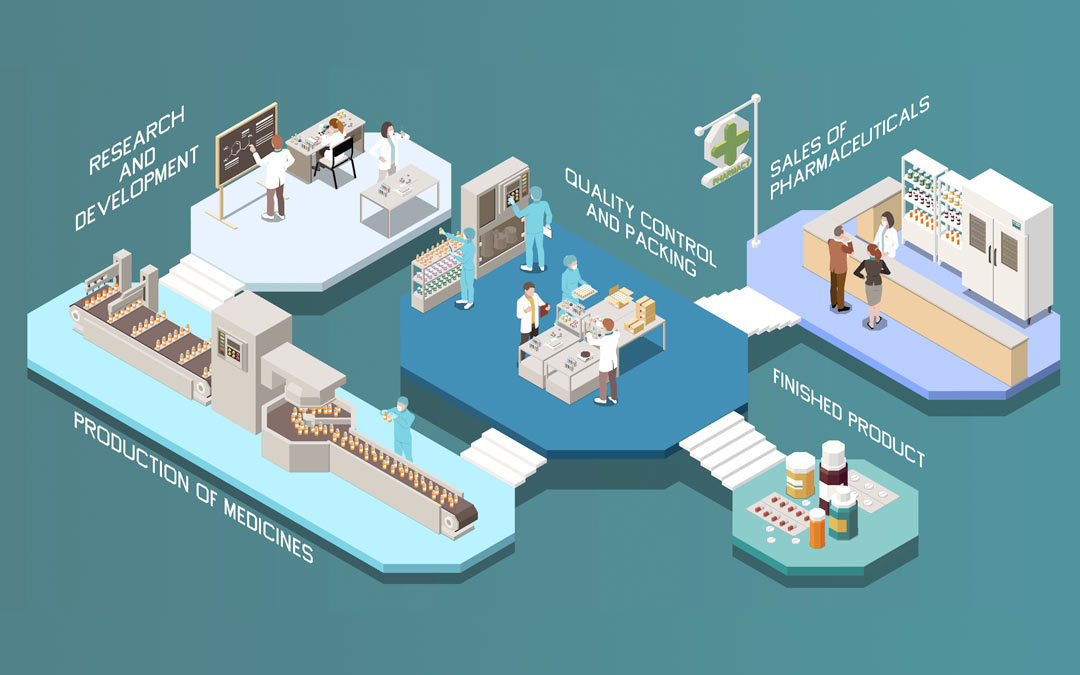Between manufacturing plants, supply chains, delivery routes, and patient care, the pharmaceutical industry is perfectly positioned to enjoy the benefits of technological advancements. Patients, pharma companies, and supply chain operators have a lot to gain from IoT solutions. Here are some of the benefits to expect from this industry due to innovations implemented on a larger scale:
1. Predictive Equipment Maintenance
Asset failure can have a significant impact on the pharmaceutical industry. Having a system that can predict failure is extremely powerful. It reduces overall risk and offers a way to prioritize assets. Quality control has a direct effect on the customer’s well-being and safety. Concerns like machine issues in the manufacturing plants include excessive voltage, wear and tear, impact damage to equipment, deterioration due to chemicals, and leakage are some issues that can result in disruption.
Ensuring customer safety and improving machine lifetime is also part of the reason why pharmaceutical companies turn to IoT for solutions. With sensors and digital maintenance dashboards, companies can now gain deep insights that prevent those problems and avoid forced shutdowns.
2. Supply Chain Monitoring
Supply chains keep our economies pumping. Every time a cargo use airways, waterways, or roadways to transport goods from one point on the map to another, it’s a collaborative effort of many people, and a lot can go wrong. Even a minor delay in the pharma can be highly disruptive. For environment-sensitive commodities, changes in external factors such as humidity, air pressure, and temperature can spoil the pharmaceuticals.
Such aspects need to be monitored to avoid costly errors. The stakes have risen now that the distribution of COVID vaccines is continuing across the world. Any deviation from the product-specific requirements can compromise the quality and effectiveness of sensitive products. IoT-based technologies help to avoid potential disasters in such situations too.
3. Improve Treatment Effectiveness
IoT provides new tools for patient care in two areas:
- Development of tailored medications specific to the individual’s condition and physiology.
- Implementation of patient monitoring wearables that provide automatic alerts to caregivers, send reminders for medicine intake and allow remote check-ins with nurses, doctors, and specialists.
Here’s an example of how IoT solutions for the pharmaceutical industry help design more effective patient treatments: The BreathSmart device by Cohero Health serves as an attachment for the patient’s inhaler. During the proposal for the device’s effectiveness, it was mentioned that 60% of asthma-related hospitalizations were because of skipped medications, either due to forgetfulness or outright refusal.
The IOT device adds a log entry every time the inhaler is used. This reminds the patient to do so and sends alerts to caregivers when the medication is not administered on time. The device can also compile and analyze data regarding a person’s lung and airway function, providing detailed information that helps doctors diagnose better. The benefits also include fewer hospital visits, more personalized treatment, and ongoing product improvements due to the data collected from multiple patients.
The goal of developing devices like this is to find newer, more effective ways to manage, monitor, and improve vital aspects within the broader healthcare industry. There’s a lot to look forward to in terms of the application of digital technology to patient care. If you are looking for technology providers who offer IoT solutions for pharma, contact us at TSPLLC.

